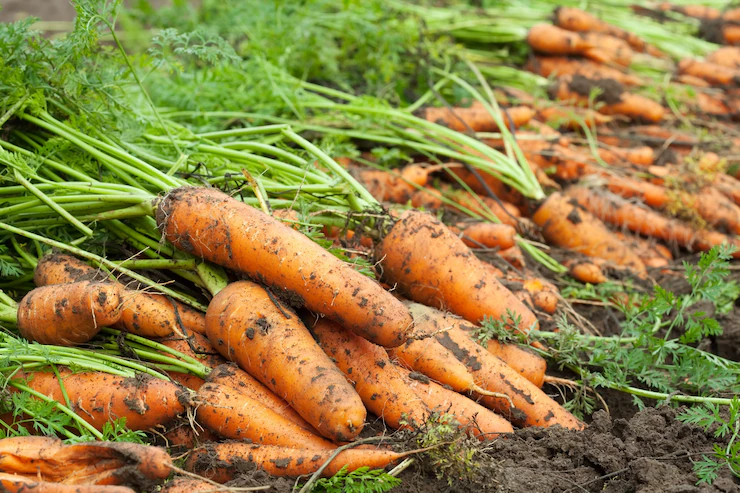When growing carrots in South Africa, there are a few infections and diseases that you should watch out for. Here are some common ones:
- Carrot Rust Fly (Psila rosae): This is a major pest of carrots in many regions, including South Africa. The larvae of the carrot rust fly tunnel into the roots, causing damage and making the carrots unmarketable. To control this pest, you can use floating row covers to prevent adult flies from laying eggs on the plants or consider using appropriate insecticides.
- Alternaria Leaf Blight (Alternaria dauci): This fungal disease affects the leaves and stems of carrot plants. It causes dark, sunken lesions on the leaves and can lead to defoliation if left untreated. Crop rotation, proper sanitation, and the use of fungicides labeled for carrot diseases can help manage Alternaria leaf blight.
- Sclerotinia Rot (Sclerotinia spp.): This fungal disease affects various crops, including carrots. It causes a white mold to develop on the foliage and roots, eventually leading to rotting. Good airflow, proper plant spacing, and avoiding excessive moisture can help prevent Sclerotinia rot.
- Root Knot Nematodes (Meloidogyne spp.): These microscopic worm-like organisms can cause galls or knots to form on the roots of carrot plants. Infected plants may show stunted growth and have reduced yields. Crop rotation, soil solarization, and the use of resistant carrot varieties are effective management strategies for root knot nematodes.
- Bacterial Soft Rot (Erwinia spp.): This bacterial disease can affect carrot roots during storage, causing softening, decay, and unpleasant odors. Proper harvest and storage practices, including removing damaged roots and storing carrots in a cool, dry environment, can help minimize bacterial soft rot.
It’s important to monitor your carrot plants regularly for any signs of infections or diseases. If you suspect any issues, consult with local agricultural extension services or experienced growers in your area for specific advice and recommendations based on the prevalent diseases in your region.







